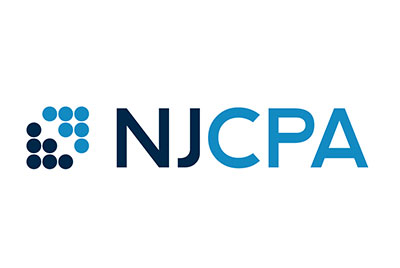DISASTER RECOVERY GUIDE
2023/24 Audit Report
by Greg Tondi, CPA, CGMA, NJCPA Director of Finance and Administration –
December 3, 2024

The combined financial statements for the NJCPA and affiliates (NJCPA Education Foundation and NJCPA Scholarship Fund) for the year ended May 31, 2024, have been published.
Fiscal 2024 continued the phase-in process for in-person meetings and events that were first relaunched in fiscal 2023 after almost two full years of mostly virtual events due to the lingering effects of the coronavirus pandemic. Compared to fiscal 2023, when NJCPA chapters held 40 in-person training sessions, fiscal 2024 included 43 chapter in-person educational events, in addition to social gatherings, the Annual Convention & Expo in June and the Atlantic City CPE Cluster in August.
On a combined basis, unrestricted revenues increased 9.5% from the prior year, with much of the increase attributable to end-of-triennial registration fees for web training, chapter events, the Convention and the CPE Cluster, as well as a large increase in the market value for all investment portfolios combined.
New Jersey Society of CPAs
For the Society, membership dues were 3.8% higher than fiscal 2023, ascribable to an increase in the dues rates, though the number of dues-paying members declined by the end of May 2024. A Pipeline Task Force was formed in the prior fiscal year with the goal of helping to stabilize and maintain membership market share in the future, and the NJCPA continues to focus on achieving this goal with a multiyear plan.
Peer review fees were slightly lower compared to fiscal 2023, due to ongoing firm mergers, acquisitions and practitioner retirements. Total expenses decreased slightly compared to fiscal 2023.
Overall, the Society experienced an increase in net assets of $395,000 which was driven mainly by investment income and overall operations that were better than budget.
NJCPA Education Foundation
The Foundation continued to operate in a “virtual-first” mode but still hosted its key in-person events such as the Convention and Atlantic City CPE Cluster. NJCPA chapters continued hosting in-person events but at a reduced level compared to pre-pandemic times. The Convention had the most attendees and sponsors since pre-pandemic times. Educational program fee revenue increased by 31% compared to fiscal 2023, with a corresponding increase in the direct costs of education programs due to food, beverage, audio-visual and other site-related charges that are not found with virtual programs. The Foundation ended the fiscal year with a positive change to net assets of $412,000 driven by investment income and increased program fees relating to the third year of the triennial, which was also higher than budget.
NJCPA Scholarship Fund
To address the shortfalls in scholarship contributions, the Education Foundation Executive Committee and the NJCPA Board of Trustees approved a funding formula that will be budgeted annually and revisited triennially going forward. The Fund still managed to provide $218,000 in scholarships during the fiscal year. The Fund’s investment portfolio also experienced a similar increase to the Society and the Foundation, with the overall results being a $328,000 positive change to net assets, which was also better than budget.
The information in this guide has been gathered from many sources, including the Internal Revenue Service, the Social Security Administration, state agencies, professional organizations and members of the NJCPA. The majority of state agencies offer online and prerecorded services. It’s best to check online or call before you visit.
Material contained within this guide should be augmented by, and used in accordance with, a certified public accountant's professional judgment. Your CPA can properly apply the tax laws and regulations to the facts and circumstances of your particular situation. For help with locating a CPA, visit findacpa.org.
The New Jersey Society of Certified Public Accountants is not responsible for any claims arising as a result of this information or its usage.
This guide was updated in September 2025. Future users of this material are cautioned that some portions, particularly tax-related information, may become outdated.